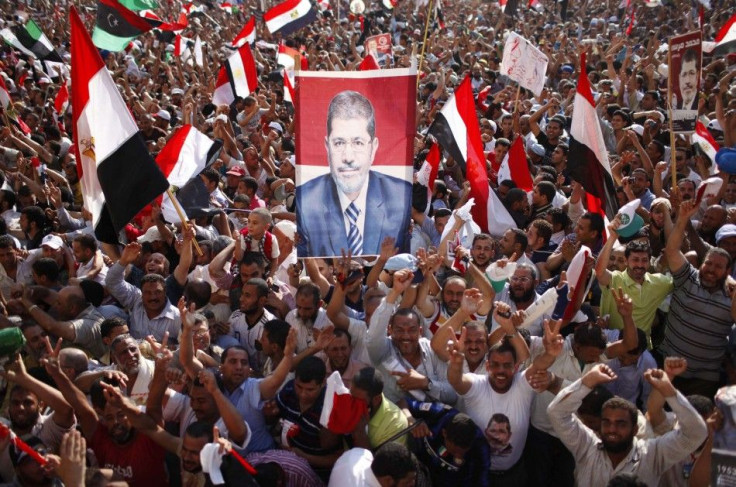Can Morsi Heal And Unite A Fractured, Post-Mubarak Egypt?

Egyptian president-elect Mohamed Morsi moved into his new office in Cairo's presidential palace on Tuesday. In this office, Morsi has already begun working to rebuild Egypt for all Egyptians, even though the scope of his position has yet to be determined.
Morsi inherits an Egypt that has become crestfallen since the revolution as the democratic process stalled and the military seized control. His first tasks will be rebuilding the economy, increasing security and fostering social unity so that this great and patient people could reap the fruits of its sacrifices.
As an Islamist -- Morsi is considered one of the more conservative members of the Muslim Brotherhood -- this last task will be difficult as many Egyptians are worried about what a nonsecular government will look like, most notably the secular activists who were at the heart of the revolution, and the country's eight million Coptic Christians.
As Brotherhood supporters and youth groups continue to gather in Tahrir Square to demand the dissolution of the Supreme Council of the Armed Forces, Morsi is drawing up a list of candidates for positions in his government and that he will declare the cabinet soon, campaign spokeswoman Nermine Mohammed Hassan told Al Arabiya. After the resignation of the military-appointed Kamal el-Ganzouri, Morsi must look for a new prime minister, and for political stability many presume he will choose a nonIslamist.
One name at the top of the list is Mohamed ElBaradei, a leftist who ran against Morsi in the first round of the presidential elections. The Nobel Peace Prize laureate is reportedly acting as a mediator between the often contentious Brotherhood and the Supreme Council of the Armed Forces (SCAF) already, and he has proved himself a capable leader during the revolution and before, as the Director-General of the International Atomic Energy Agency (IAEA).
Morsi also said that at least one of his three vice presidents will be either a woman or a Christian, and one will be a former presidential candidate.
The president-elect's next step will likely be overseeing the drafting of the new constitution and the re-creation of parliament after it was disbanded by the SCAF. Morsi won the support of some secular activists and youth groups through their shared distrust of Ahmed Shafiq, an ex-Hosni Mubarak confidante and Morsi's opponent in the elections. Now, he must keep his promise to his informal coalition by making sure the SCAF gives up power, as promised, and keeps its hands out of the constitutional process, which is unlikely.
The Brotherhood now faces a choice. It can seat Morsi and continue to legitimate a post-Mubarak transition that seems designed to advance the narrow interests of Egypt's officer corps. Or it can return to the streets with the aim of unseating the military council, Jeff Martini, Project Associate at the RAND Corporation, wrote for Foreign Affairs.
While the likelihood that the Brotherhood will start the next revolution is slim, the behind-closed-doors confrontation between the Brotherhood and the military will be a defining moment. Some are suggesting that the Brotherhood will try to make a deal with the SCAF, but the terms of such an agreement are unknown. The one thing that is certain is that the SCAF has control now and is in position to say who gets it next.
© Copyright IBTimes 2024. All rights reserved.





















